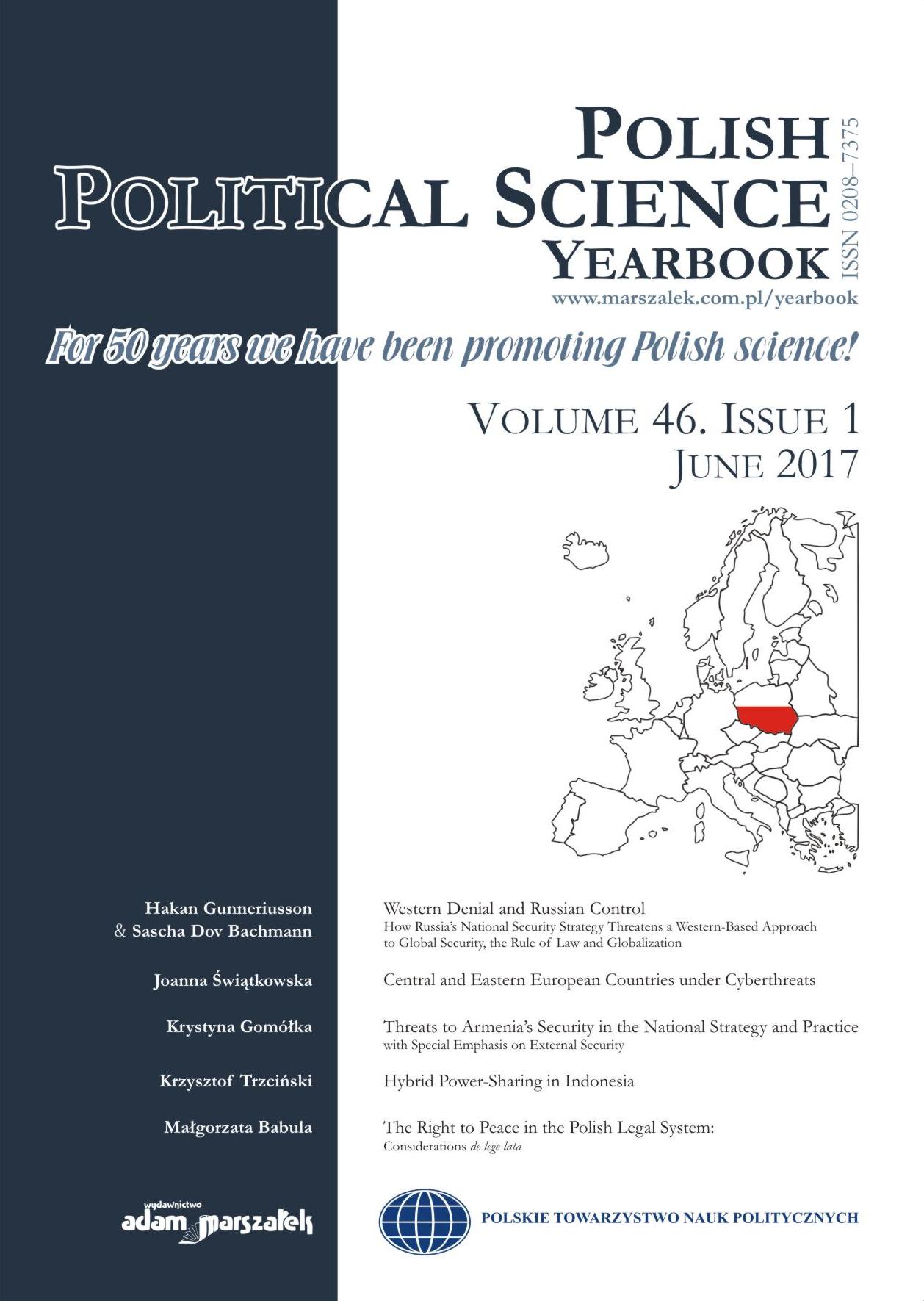Challenges of Fight Against Terrorism with Reference to the Last Amendment of the New Hungarian Criminal Code
Challenges of Fight Against Terrorism with Reference to the Last Amendment of the New Hungarian Criminal Code
Author(s): Robert BartkoSubject(s): Politics, Criminal Law, International Law, Human Rights and Humanitarian Law, Security and defense, Military policy
Published by: Wydawnictwo Adam Marszałek
Keywords: illegal migration; acts of terrorism; Hungarian Criminal Code; Hungarian statutory definition
Summary/Abstract: During the codification of the new Hungarian Criminal Code, the Hungarian Legislator passed amendment of several criminal offences. Among other criminal offences, this rethinking concerned the regulation of acts of terrorism. The number of terrorist offences relating to illegal migration has increased in the past few years in the territory of the European Union, therefore the attitude of the Member States – including Hungary, as well – has changed with reference to the statutory definition of the acts of terrorism. The connection between irregular border crossings and terrorism was recognized by the European Union. Terrorist offences have proved the vulnerability of the European Union and the democratic, rule-of-law States. Furthermore, the last few years have also clearly proved that Europe cannot cope with the influx of refugees set out for the Western Europe from various parts of the world. In this respect, illegal migration cannot be only a tool, but also a catalyst for terrorist offences. It means that case conflicts and violent affairs are caused by the migration, and the illegal entry and the integration of terrorists are supported by migratory networks at the same time. In 2015 and 2016, the European Union experienced a massive number of casualties caused by terrorist attacks. The most affected Member State was France. It had to cope with attacks which caused 148 citizens’ death and more than 350 people injured only in January and November 2015 (TE-SAT 2016, p. 5.). For the abovementioned recognition, many regulations (included but not limited to the Fundamental Law of Hungary, the Hungarian Criminal Code and the Act on Criminal Procedure) were passed in 2016 by the Hungarian legislator in order to stop illegal migration and to strengthen the fight against the new forms of terrorism. In the context of the present paper, the Act LXIX of 2016, which came into force on 17 July 2016, is of importance. Not only the General Part, but also the Special Part of the Hungarian Criminal Code was amended by the above Act. However, many new rules may be challenged from the perspective of the rule of law and the European commitments of Hungary. The aim of the paper is to describe the new regulations regarding the Hungarian statutory definition of acts of terrorism, and to analyse them within the Hungarian criminal legal frame and the abovementioned European requirements. Therefore, the characteristic of the paper will be the analytical method with the aim of creating de lege ferenda proposals for the Hungarian legislator, as well. In our paper, we are going to deal with the new European directive, as well, which will replace the Council Framework Decision 2002/475/JHA and will amend the Council Decision 2005/671/JHA from 20 April 2017.
Journal: Polish Political Science Yearbook
- Issue Year: 46/2017
- Issue No: 1
- Page Range: 315-327
- Page Count: 13
- Language: English

